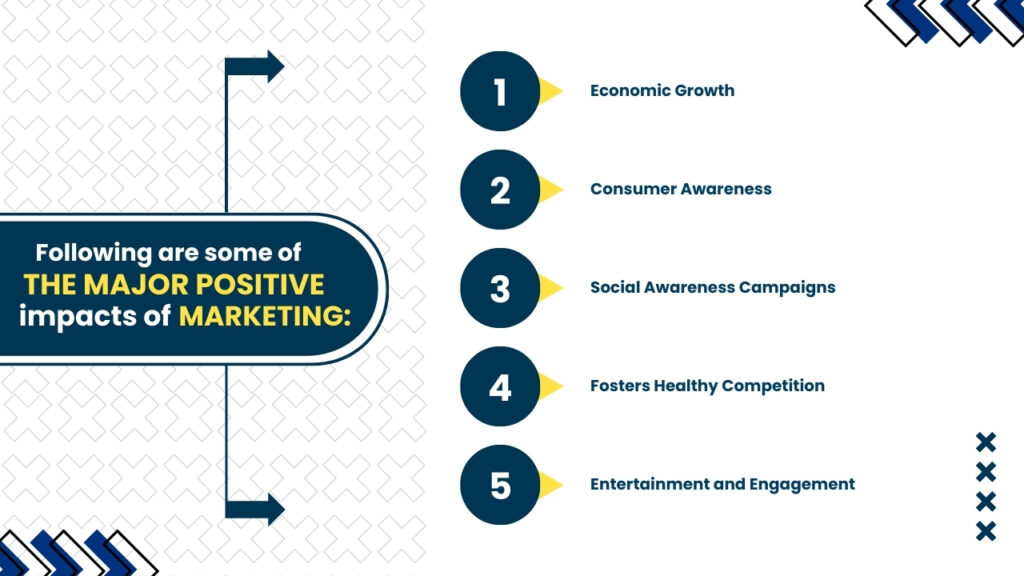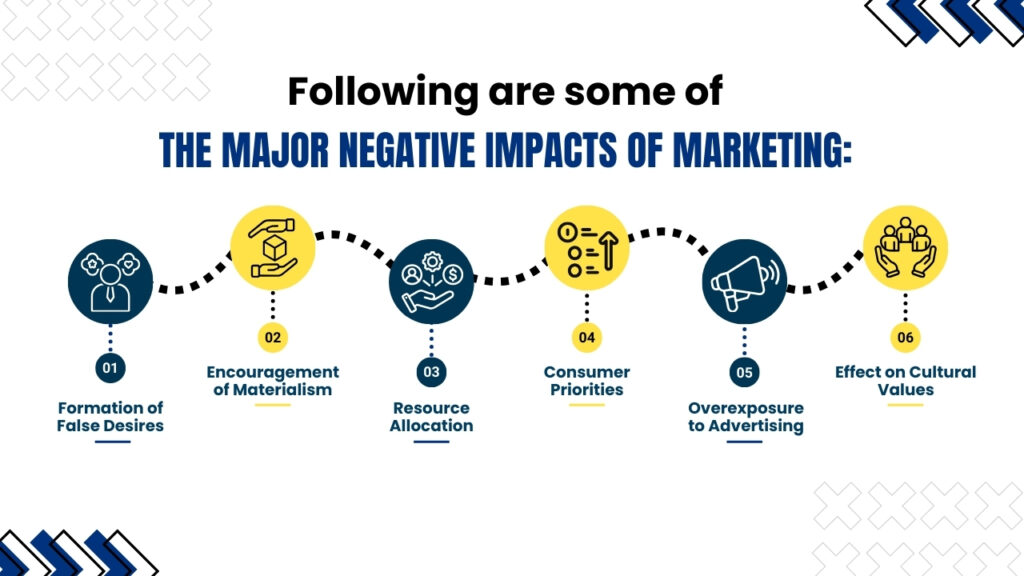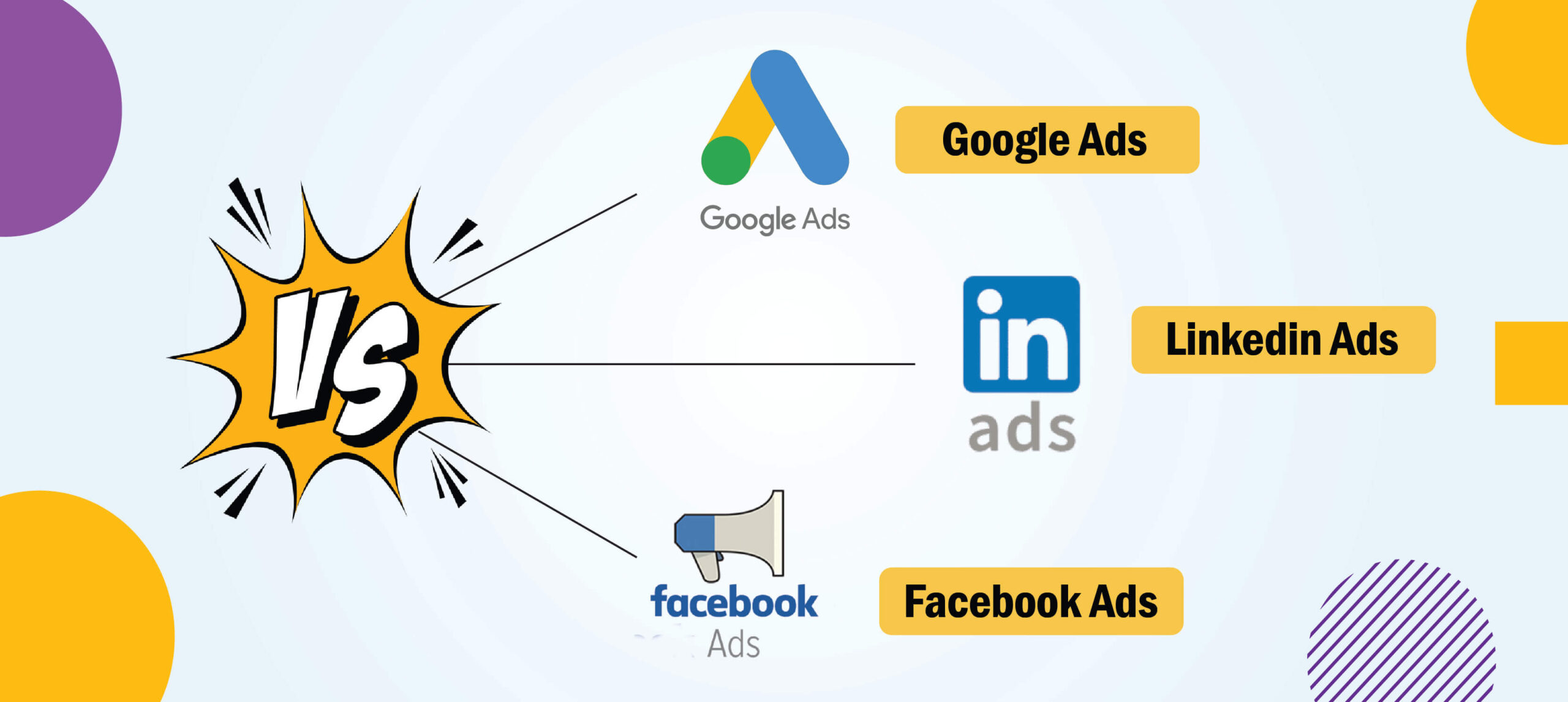Introduction
Marketing has become a vital component of our everyday existence, shaping not only societal frameworks but also our cognitive processes. This prompts us to consider several inquiries, such as:
How does marketing benefit society?
Or
What is the role of marketing in society?
It has been proven by research that marketing has evolved far beyond the extent of product and service advertising. Nowadays, in the rapid and globalized era, it accomplishes much more than conventional advertisement.
The role of marketing in society is an influential force which shapes the manner in which individuals live, associate with each other, and decide.
As Sujit Shukla emphasizes with the use of knowledgeable communication and imaginative stories, marketing brings firms to their customers, generates public interest, and sets up cultural and social movements.
Although its most noticeable purpose is traditionally related to marketing and increasing market share, the impact of marketing reaches far beyond business goals.
It teaches people about important matters, promotes decent competition, and brings in innovations that improve the quality of life.
Marketing can also encourage people to lead healthier lives, preserve local communities, and adopt sustainable practices.
Moreover, marketing serves society in terms of stimulating economic growth due to heightened demand, employment opportunities, and industry growth as a whole.
Marketing helps startups to prove their existence, provides customers with access to differentiated choices, and stimulates the development of technologies and services that are useful to society.
Essentially, marketing is not just a business function but also a social influence that educates, empowers, and lifts humanity.
Through perception building, cultural influence, and promoting ethical consumption, marketing has a very important role to play in shaping an educated, harmonious, and progressive society.
Marketing ethics is beneficial to society through strengthening trust, equity, and environmentally friendly business.
This involves creating tighter business-customer bonds, lowering legal and regulatory problems, and supporting a more sustainable and responsible business society.
Marketing has been separated into traditional and internet marketing, which includes a broad set of methodologies and techniques.
With this blog, we are attempting to shed some light on the role and contribution of marketing to society.
Also Read: Best Programmatic Advertising Platforms
What is ethical marketing and why is it essential for society?
Ethical marketing is the honest and ethical promotion of goods or services with their impact on customers and society in consideration.
It is vital for gaining trust, building long-term customer relations, and promoting fair competition. Ethical values being the first priority allow companies to boost their reputation, gain socially responsible consumers, and create a healthier and sustainable business environment.
The ethics of ethical marketing are based on honesty, transparency, equity, and respect for customers, including the ethical treatment of information, advertising, and business practice.
Also Read: Mistakes Small Business Owners Make When Using SEO
How Does Marketing Impact Our Society?
Marketing extends beyond one-to-one customer experiences but also generates significant effects on society at large. While it can drive economic growth and innovation as much, it can also generate undesirable effects on society in terms of inducing pseudo-wants, materialism, social goods scarcity, and cultural pollution.
As Sujit Shukla States marketing plays a significant role in benefiting society through various means, including fostering economic development, increasing awareness of critical issues, and informing consumers about available products and services.
Let us discuss such contributions in detail.
Also Read: Targeting Small Business Owners on Facebook
Following are some of the major positive impacts of marketing:

1.)Economic Growth:
Marketing generates consumer demand, which subsequently stimulates production and job creation. By promoting goods and services, businesses can attract new customers, boost sales, and grow their operations.
This encourages the economy since companies expand and employ more employees.Optimal marketing campaigns can entice investments and encourage commerce, especially during economic recovery.
Moreover, marketing is an important factor in encouraging competition, stimulating innovation, and enabling international trade, all of which lead to the development of a strong and dynamic economy. of a robust and dynamic economy.
Also Read: User Acquisition Vs Traffic Acquisition
2.)Consumer Awareness:
Marketing directly leads to consumer awareness by introducing products and services, creating word about their features and benefits, and building emotional connections that affect purchasing intentions.
Marketing informs consumers regarding the products, brands, product features and functionality of the products and services available in the market.
Efficient marketing practices can also achieve brand recognition because consumers are in a position to purchase a brand they know well.
Marketing helps consumers to easily make right choices about purchases of right products and services.
Also Read: How Often Should you Evaluate Your Paid Media Budget
3.)Social Awareness Campaigns:
Marketing can also increase social awareness by increasing brand visibility and drawing attention to societal issues, thus inspiring people and communities to act.
This is done through a number of strategies, such as social media marketing, influencer partnerships, and niche content marketing that appeals to certain groups.
Advertising also often serves public health, safety, and welfare causes. Projects covering issues of smoking prevention, traffic safety, conservation, and mental illness have the potential to bring about favorable societal changes.
Using such strategies, marketing professionals can clearly communicate essential details regarding major problems as well as create a feel of belonging and advocacy. Society becomes healthier and better informed because of this.
Also Read: How to Target Seniors on Facebook
4.)Fosters Healthy Competition:
Marketing promotes healthy competition by emphasizing the distinctions between products, boosting sales and revenue, and educating consumers on the advantages of one company over another.
By prioritizing brand recognition, fostering customer loyalty, and implementing effective pricing strategies, marketing motivates businesses to enhance their offerings and attract customers, resulting in a more competitive and vibrant market landscape.
This competition leads to improved products and services at reduced prices, ultimately benefiting consumers by providing them with greater choices and encouraging innovation across different sectors.
5.)Entertainment and Engagement:
Entertainment marketing enhances engagement and entertainment by integrating brands into diverse media, crafting immersive experiences, and utilizing platforms such as social media to connect with consumers.
These practices include content marketing, one-to-one communication, and interactive content that addresses the target audience.
Marketing utilizes imagination and storytelling to engage individuals. In addition to merchandise selling, these practices also provide audiences with memorable experiences, totaling popular culture.
Also Read: Best Programmatic Advertising Platforms
Following are some of the major negative impacts of marketing:

1. Formation of False Desires:
Marketing can form an unwanted need for goods or services that are not really needed, leading to false desires. Through the power of convincing advertisements and publicity tactics, consumers are generally convinced to desire things that do not lead to their happiness or well-being.
This can shift focus from essential needs to worldly possessions.
2. Encouragement of Materialism:
Excessive marketing promotes materialism in society with people gauging success and happiness through possessions.
This would lead to a never-ending consumption loop in which materialism outweighs other values like community, sustainability, and fulfillment.
3. Resource Allocation:
The huge marketing efforts are likely to be concentrated on profitable products rather than basic social goods like education, health, and sustainability.
This could lead to an unbalanced resource allocation pattern, with consumer goods receiving more attention and investment than concentrating on social and environmental issues.
4. Consumer Priorities:
The emphasis on consumer goods also influences public priorities, diverting attention and resources away from core social problems. This may create a social imbalance in which the production of social goods is neglected.
Also Read: Mistakes Small Business Owners Do When Using SEO
5. Overexposure to Advertising:
Individuals are exposed to advertisements on various media constantly. Such repeated exposure can be considered as a form of cultural pollution, saturating public arenas and media with commercial communication.
It may render individuals callous towards marketing communications and degrade the quality of public life.
Also Read: Google Ads Vs Facebook Ads Vs Linkedin Ads
6. Effect on Cultural Values:
Marketing has an effect and distorts cultural values at times.By promoting specific lifestyles, consumer behaviors, or ideals of beauty, advertising plays a role in the cultural homogenization and the decline of traditional practices and values.
Sujit Shukla states that the impact of marketing on society is complex and multifaceted. It can stimulate economic growth and inform consumers about products and services that are on offer; nevertheless, it also poses challenges such as promoting materialism, diverting attention away from social welfare, and shaping cultural norms.
In order to control these impacts, there is a need to adopt ethical marketing practices, increase consumer consciousness, and put into place regulatory systems that advance not only economic growth but also social welfare and protection of cultural diversity.
Also Read: Cons Of Using Tumblr on Marketing
How Does Marketing Benefit Society?
Marketing plays a beneficial role in society by driving economic growth, educating and informing consumers, and fostering competition and innovation. It aids in job creation, improves quality of life, and addresses social challenges through various societal marketing initiatives.
The following is an overview of the several benefits of marketing in today’s society.
1. Supports economic growth:
Marketing and advertising serve to reach targeted groups of consumers who are most likely to purchase a particular product or service.
If the people targeted do indeed purchase the services or products they are marketed towards, the business may acquire new customers and its revenue may expand.
As the revenue expands, the company as a whole may begin to grow by reaching more consumers, entering new markets, introducing new products, etc.Apart from that, marketing also needs qualified individuals to work in the sector.
By simply applying marketing, companies pave the way for job creation and opportunities that can be occupied by experts who also help in the economic growth by working and spending.
If companies of a nation become successful, grow, and increase their revenue, will have a positive effect on the economy of the nation in which that business is located.
Similarly, the consumer demand that marketing generates compels companies to fulfill that demand which also benefits the economy.
2. Understanding Consumer Behavior:
Marketing explains consumer behavior by offering tools and techniques to study and interpret how consumers believe, feel, and behave about products, services, and brands.
Having this knowledge is important in order to customize marketing messages, create effective strategies, and ultimately create sales and brand loyalty.
Besides handling consumer expectations, marketing can also assist companies in modeling consumer behavior. That advice given above is not only the advice of thoughts (i.e. expectations) but also of actions (i.e. behavior).
That is why so many companies invest huge amounts of money on research in an attempt to better know consumer behavior and how it can be shaped by marketing and advertising. This is also the reason why most firms spend a lot on marketing.
Also Read: How to Target Seniors On Facebook
3. Encourages Product Innovation and Progress:
Marketing pushes product innovation through offering useful information about customer requirements, market patterns, and competition, which guides the creation of new products and services that better address market needs.
Through understanding these forces, businesses can create innovative products that appeal to their target market and remain competitive.
Marketing develops industry standards that consumers begin to expect. Due to this, all the firms in the niche attempt to uphold the standards in order to satisfy consumer expectations.
This, in turn, generates competition among various brands and ultimately leads to innovation. To survive on the market, a business not only has to grow but also evolve over time to keep up with everything and perhaps even ahead of everybody else.
4. Raises Consumer Awareness:
Marketing, specifically advertising, increases consumer awareness by familiarizing consumers with products and brands, presenting them to possible customers.
It does so through diverse avenues such as ad campaigns, social media, and word of mouth, exposing consumers to brand names, logos, and jingles.
Additionally, marketing draws attention to a product’s uniqueness, features, and the ways it responds to certain needs or issues, facilitating informed decision-making on the part of the consumer.
Marketing informs the consumers about various products, brands, features and utility of the products and services in the market. Marketing allows the consumers to make correct decisions on the right purchases of the right products and services.
Also Read: Best Social Media Platforms for Restaurants
5. Promotes Social Change:
Marketing encourages social change by utilizing its persuasive methods to alter behavior and instill awareness about social issues.
Most often, this is done through social marketing, which applies commercial marketing methods to solve social issues and encourage positive change.
Using imagery, slogans, video, and music, advertisers create campaigns that attempt to capture the interest, shock, teach, and inform consumers.
Though such social change campaigns are usually first and foremost intended to market a product, they also have an important influence on shaping the norms of society and altering society.
Also Read: Pinterest Ads Vs Facebook Ads
6. Improve Customers Quality of life:
Marketing is central to improving the quality of life by bringing people together with products, services, and experiences that meet their needs and desires.
To begin with, through successful marketing, consumers become aware of new solutions and technologies aimed at making everyday tasks easier, saving time and effort.
For example, marketing smart home devices can make household chores easier, thus improving convenience and releasing leisure time.
In addition, marketing provides access to necessary goods and services, with people having access to healthcare, education, and other necessities.
By using targeted campaigns, disadvantaged communities can be made aware of resources available to them, resulting in better health outcomes and socio-economic empowerment.
Additionally, marketing creates a culture of innovation and competition, where companies are pushed to constantly improve their products to respond to changing consumer needs.
This leads to creating products and services of greater quality that improve functionality, durability, and overall satisfaction for the customer.
7. Builds cultural exchange and appreciation:
Marketing fosters cultural understanding and appreciation through the creation of cultural exchange and awareness of varied cultural practices and values.
By making marketing campaigns culturally specific to appeal to certain cultural contexts, companies are able to establish more relationships with customers and foster a feeling of belonging.
It also assists in preventing cultural misunderstandings and promoting a favorable company image through proof of cultural respect.
Marketing teams study and know the cultural beliefs, values, and practices of the groups they are targeting, so that their marketing messages are culturally appropriate and do not accidentally offend anyone.
Companies tailor their messaging, images, and content to the particular cultural mores and tastes of their target consumers.
8. Empowers Consumers:
Marketing has the ability to empower consumers by offering information, facilitating choice, and establishing trust, which ultimately translates into more knowledgeable and assertive purchasing decisions.
Empowerment can be accomplished through several tactics, such as personalization, transparent communication, and interaction with consumer input.
Empowered consumers are likely to seek out other alternatives that exist for them so that they may make choices most suited to their needs and tastes.
Companies that make buying easier and decrease friction enable customers by making it simpler for them to interact with a brand.
Conclusion:
Marketing also plays a significant role in supporting societal movements. It is evident that marketing is not harmful to our society; instead, it strengthens our culture and fosters connections among individuals. If possible, pursuing a major in marketing is advisable.
Currently, there is a notable shift towards corporate social responsibility. It will be intriguing to observe the direction this trend takes in the coming years, but one thing is certain: this transformation is not a fleeting phenomenon.
In fact, it may be just the beginning.
Ultimately, the seven functions of marketing serve as the driving force behind societal change, with us as passengers on this journey.






